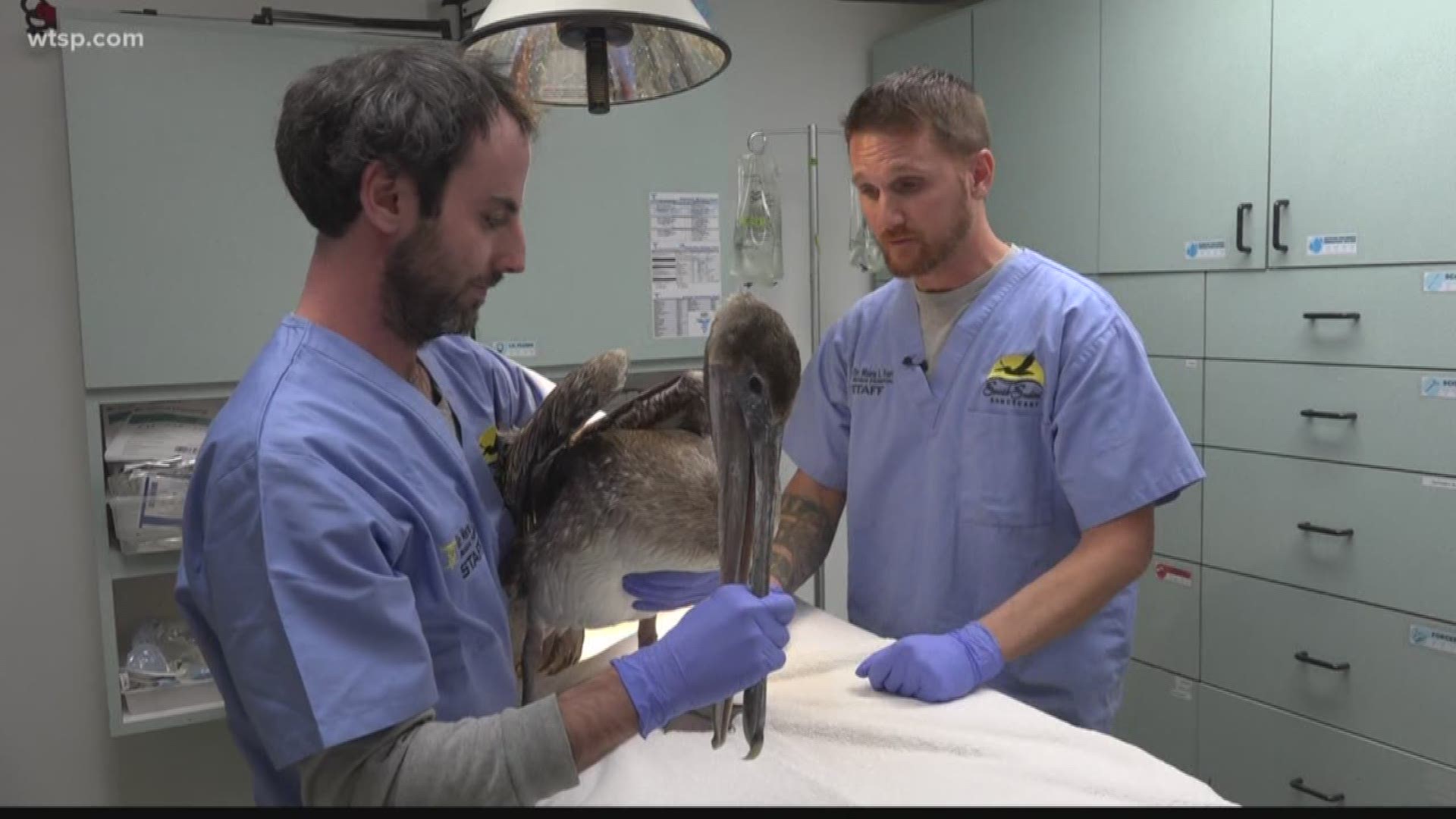ST. PETERSBURG, Fla. — The brown pelican is now the official bird of St. Petersburg, but the once-endangered species is still facing trouble today despite their new title.
Seaside Seabird Sanctuary got a call yesterday from Causeway Boulevard of a pelican that seemed to be lethargic, underweight and unable to fly.
“When she came in she was weighing about 500 grams. She was very emaciated. She probably hadn’t eaten in a good few days," said Justin Perelli, a hospital tech at Seaside Seabird Sanctuary.
Weighing half of what she normally should, this 2-year-old pelican was rescued by volunteers at with the sanctuary.
“So we were able to stabilize her. We got her on some fluids. We gave her some emergency nutrients. Almost in the form of a fish slurry," Perelli said.
The problem: She was covered in cooking oil.
“I was concerned about the fact that she had an incredible amount of cooking oil all over her feathers. As you can see here, it's still pretty shiny. We gave her a Dawn bath this morning, " Perelli said. "She’ll get probably, probably about two more today. And then we’ll try to give her about three baths a day.
"We don’t want to stress her out too much, but we are trying to get all this off of here.”
The oil prevents pelicans from preening, which they do to remain waterproof. It helps them to float, fly, and of course, dive and hunt for food.
“Unfortunately, there are a lot of restaurants that will improperly dispose of their cooking oil. And the birds, they don’t know the difference. So they will either go behind these restaurants looking for food, you know maybe they’re feeding them back there," Perelli said. "And they will either go and get into these vats of cooking oil that are stored behind the buildings.
"Or you know sometimes people just dump it in the water. And they go in the water and they collect it."
Even though this young bird was in really bad shape when she first came in, the great news is she should make a full recovery.
“I’m going to say that she’s going to be here anywhere from a week to two weeks. Depending on her actually, really. We will not let her go until her weight is up and she’s eating on her own, regularly, for about a good four, five, six days," Perelli said. "Hopefully, with some proper care she’ll be back up on her feet and back into the wild.”
The Seaside Seabird Sanctuary said that roughly 15 percent of the pelicans they take in are coated in cooking oil. Their No. 1 cause of issues and injuries are related to fishing. Pelicans come in with swallowed hooks, tangled wire and cut throats or stomachs from swallowing filleted fish.
According to Pinellas County Water/Sewer Utilities, all restaurants must have "grease inceptors" that must be pumped at least every 30 days.
What other people are reading right now:
- 'He died protecting his family' | Coach and father of three stabbed to death in home while son was there
- Police: Baby found in stroller next to woman passed out on sidewalk
- Family says cat was accidentally euthanized during routine vet visit
- 10Weather Alert: Freeze Watch issued for 2 Nature Coast counties
- Gasparilla Guide: Everything you need to know about the 2020 pirate festival
- Attention viewers: WTSP is undergoing planned work on our tower



